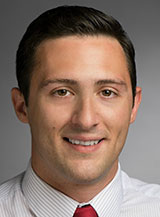Member Highlights: Dr. Panos P. Markopoulos

 Dr. Panos P. Markopoulos (Senior Member, IEEE) was born in Athens, Greece, in 1986. He received the Engineering Diploma degree (five-year program) in electronic and computer engineering, the M.S. degree in electronic and computer engineering, from the Technical University of Crete, Chania, Greece, in 2010 and 2012, respectively, and the Doctor of Philosophy degree in electrical engineering from The State University of New York at Buffalo, Buffalo, NY, USA, in 2015. In August 2015, he joined the Department of Electrical and Microelectronic Engineering of the Rochester Institute of Technology (RIT) as a tenure-track assistant professor. In August 2021 he received tenure and promotion to the rank of associate professor in the same department. Dr. Markopoulos is a core faculty of the RIT Center for Human-Aware Artificial Intelligence (CHAI) and the founding director of the RIT Machine Learning Optimization and Signal Processing (MILOS) Lab. In the Summers of 2018, 2020, and 2021, he was a Visiting Researcher in the US Air Force Research Laboratory (AFRL), Information Directorate, Rome NY. He is a Senior Member of the IEEE and a member of the IEEE Communications, Signal Processing, Computer, and Computational Intelligence societies. He has served as an associate editor for IEEE Wireless Communication Letters and as a reviewer for multiple IEEE publications. In 2017, he was awarded the Outstanding Reviewer Award from the IEEE Communications Society. Moreover, he has co-organized multiple IEEE conference/workshop events, such as the 2019 IEEE International Workshop on Machine Learning for Signal Processing.
Dr. Panos P. Markopoulos (Senior Member, IEEE) was born in Athens, Greece, in 1986. He received the Engineering Diploma degree (five-year program) in electronic and computer engineering, the M.S. degree in electronic and computer engineering, from the Technical University of Crete, Chania, Greece, in 2010 and 2012, respectively, and the Doctor of Philosophy degree in electrical engineering from The State University of New York at Buffalo, Buffalo, NY, USA, in 2015. In August 2015, he joined the Department of Electrical and Microelectronic Engineering of the Rochester Institute of Technology (RIT) as a tenure-track assistant professor. In August 2021 he received tenure and promotion to the rank of associate professor in the same department. Dr. Markopoulos is a core faculty of the RIT Center for Human-Aware Artificial Intelligence (CHAI) and the founding director of the RIT Machine Learning Optimization and Signal Processing (MILOS) Lab. In the Summers of 2018, 2020, and 2021, he was a Visiting Researcher in the US Air Force Research Laboratory (AFRL), Information Directorate, Rome NY. He is a Senior Member of the IEEE and a member of the IEEE Communications, Signal Processing, Computer, and Computational Intelligence societies. He has served as an associate editor for IEEE Wireless Communication Letters and as a reviewer for multiple IEEE publications. In 2017, he was awarded the Outstanding Reviewer Award from the IEEE Communications Society. Moreover, he has co-organized multiple IEEE conference/workshop events, such as the 2019 IEEE International Workshop on Machine Learning for Signal Processing.
Dr. Markopoulos’ research is in the areas of machine learning, data science, and signal processing, with a vision to advance efficient, explainable, and trustworthy artificial intelligence. Together with students and collaborators, he has co-authored more than 70 journal and conference articles, as well as 2 book chapters. has received multiple awards from RIT for exemplary performance in research and teaching. In October 2019, he received the Young Investigator Program (YIP) Award from the US Air Force. Since 2016, Dr. Markopoulos research has received external funding awards in the order of $2M (both as PI and Co-PI) from sponsors including the US National Science Foundation, the US National Geo-Spatial Intelligence Agency, and the US Air Force. Notably technical contributions from his team include optimal and approximate algorithms for L1-norm principal-component data analysis, methods for robust and dynamic tensor decomposition, min-mean-squared-error coprime-array signal processing, and tensor-methods for continual/incremental learning.
We approached Dr. Panos P. Markopoulos with a few questions to learn more:
1. In your own words, please tell us about your background.
I was born in Athens, Greece, in 1986. In 2010 and 2012, respectively, I received the engineering diploma and MS degrees, both in electronic and computer engineering, from the Technical University of Crete, located in the beautiful city of Chania, on the island of Crete, Greece. In 2015, I received the PhD degree in electrical engineering from the State University of New York at Buffalo. Currently, I am an associate professor with the department of electrical and microelectronic engineering at the Rochester Institute of Technology (RIT) and a core faculty of the RIT Center for Human-Aware Artificial Intelligence. In 2016, I founded the RIT Machine Learning Optimization and Signal Processing Laboratory, which now consists of 5 PhD and 5 BS/MS student researchers. My research is in the areas of machine learning, data science, and signal processing, and my vision is to advance efficient, explainable, and trustworthy artificial intelligence. My work has been supported with multiple generous awards from sponsors such as the National Science Foundation, the National Geo-Spatial Intelligence Agency, and the US Air Force. In October 2019, I was honored with the Young Investigator Program Award from the US Air Force Office of Scientific Research. One more exciting milestone in my career has been my recent elevation to the rank of IEEE Senior Member!
2. What are the most important factors in your success?
The main factor in all my accomplishments has been the support and encouragement that I receive from my family, who help me stay positive and focused through challenges and humble through successes. Moreover, invaluable has been the contribution and support of my mentors, my students, and my collaborators. I am deeply thankful for everything that I have learned from them and for all that we have achieved together. The entire list would be too long to present here and major omissions would be inevitable, but I would like to especially mention my PhD advisor, Professor Dimitris A. Pados, who has taught me so much about how to be an academic and a scholar. Apart from the human factor, what has mostly helped me so far in my career is my perseverance. I do not take successes for granted and I never cease efforts to learn and improve.
3. Failures are an inevitable part of everyone’s career journey, what is the most important lesson you have learned during your career when dealing with failures?
Indeed, as engineers that conduct experiments we know that failures are an inevitable part of almost every path that leads to progress. Failures are also necessary for putting a perspective on success. In my career, I have learned to accept any nonachievement as an important lesson and use it to improve myself, overcome obstacles, and ultimately succeed.
4. How does your work affect society?
My basic research on theory and algorithms for signal processing, machine learning, and data science has a very wide range of applications across diverse areas of science and engineering, such as wireless communications, bioinformatics, and general AI systems. For example, by developing methods that are less responsive to corrupted data (appearing, e.g., due to sensor malfunctions or even adversarial interference), we contribute towards more robust and reliable solutions, which is critical for applications in medicine/healthcare or defense. With our methods for dynamic tensor analysis and processing, we contribute to applications that rely on dynamically changing multi-way data (such as videos or evolving network graphs). With our more recent work on incremental and continual learning with matrix/tensor rank updates, we contribute towards AI systems that keep learning, maybe alongside humans. Moreover, as an academic instructor and research advisor, with a mission to educate, train, and inspire the next generation of technology leaders, I am fortunate to have an even wider indirect impact on our society through the accomplishments of my students.
5. In your opinion, what are some of the most exciting areas of research for students and upcoming researchers?
Over the past decades, technology progress has been remarkable, especially in the areas of data science and machine learning, and the frontier for possible new discoveries has widely expanded. It is only natural that new researchers might have difficulty in deciding where to place their focus and efforts. In my opinion, a quest on what to work on should be preceded by identifying the immediate and long-term goals of the researcher, as well as what excites and inspires them on a personal basis. For example, if one is inspired by working on more fundamental problems, then a formal mathematical investigation of the inner workings and performance limits/guarantees of modern neural-network systems, towards boosting their explainability and trustworthiness, could be a great topic to work on. Of great interest are also the areas of data quality enhancement and robust machine learning. There is currently a very large number of machine learning methods that exhibit outstanding performance when fueled with immense volumes of training data, but they are fragile against adversarial attacks (even small perturbations) and prone to overfitting when operating on limited data. At the same time, many critical applications (as for example in the areas of medicine and defense) cannot afford very high volumes of labeled data or a high risk of failure in the case of corrupted data. Thus, developing methods for data quality enhancement as well as methods for robust machine learning from limited and (possibly adversarially) corrupted data can lead towards data-efficient, practically applicable, and more reliable solutions. Last, but not least, I find that two increasingly important areas to work on are human-centered AI and AI ethics. These are areas of multi-aspect research that can have an enormous immediate impact and function as catalysts for the extensive adoption of advanced modern technology. The above are just a few examples from a wide range of exciting and truly impactful topics in our broader research area.
6. If there is one take home message you want the readers of this interview to have, what would it be?
I am very thankful for this interview and I would like to close it with a message of encouragement to everyone who reads this and, particularly, to students and early-career members of our community. Amid the outstanding hardships that this pandemic has brought to our lives, I wish for everyone to stay positive, support each other, and keep pursuing their dreams. Better days will come and we, electrical, electronics, and computer engineers, can greatly contribute to that.
To learn more about Panos P. Markopoulos, please visit his webpage.

